Newsletter 2
Welcome to the second Fitzjames newsletter, in which we examine the reception of the news of the identification of Fitzjames' remains by the media & fandom. Plus a detailed update on my research!
Save the date! Fitzjames Birthday Party 26 July 2025
Last year on Fitzjames’ birthday (27 July) I organised a tour of several places connected to him in Hertfordshire, where he grew up. It was an amazing day with a lovely group of 21 people. This year I’ll organise another tour and it will take place on Saturday 26th July. We will go to Watford and Abbots Langley. Please click here for more info and sign up.
——————————————————————————————————————
(Social) media reception
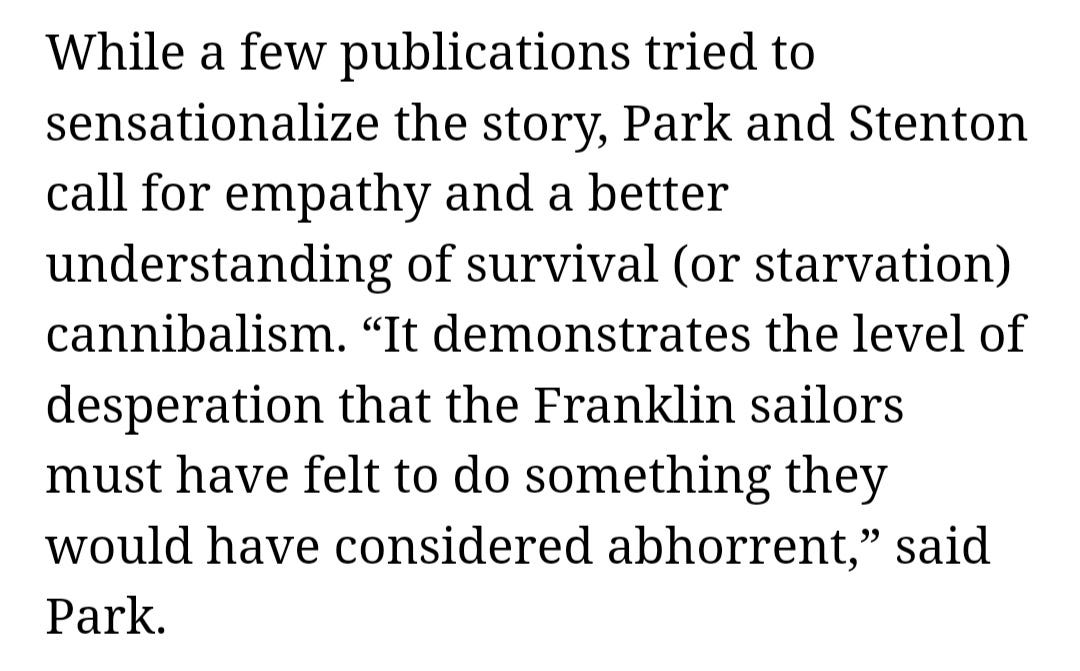
Unsurprisingly, this call for empathy was ignored by many popular media outlets, who used headlines that sounded more like they were advertising a horror movie than reporting on a historical discovery concerning a real human being. Many people are drawn to the Franklin Expedition by the mystery and the cannibalism. Personally, what fascinates me about the Franklin Expedition (and in fact about history in general) is the human aspect, the stories and lives of these Navy men who went to the Arctic for what they thought would be a relatively easy success, never to return home to their loved ones. Yes, it is a tale of Imperialist hubris. They all joined the expedition of their own volition and as with any campaign in their line of work, they knew that risks were involved. Nevertheless, the way they met their end was horrible and a sad loss of mostly young men who had entire lives ahead of them.
When I read the scientific article by Douglas Stenton et al about the identification of Fitzjames’ remains and that they have cut marks consistent with cannibalism, I immediately knew that the media and the internet were going to have a field day with this news. Accordingly, many sensationalist news headlines followed and vulgar memes by fans of the historical fiction Franklin Expedition series The Terror abounded on social media. The historical discovery was treated by The Terror fandom as if a new episode of their favourite series just dropped, using pictures of the actor Tobias Menzies as the character Fitzjames to say: “They found him!”. Prevalent in The Terror fandom is a genuine enthusiasm for cannibalism, which I really cannot say I share. Fan art is made of Fitzjames’ mandible as if it were a prop from the show and fans delight in talking about Fitzjames being eaten. If this was the Hannibal fandom (I mean the 2013-2015 incredibly aesthetic series with Mads Mikkelsen as the fictional human meat-loving psychiatrist), this kind of fan behaviour would make more sense to me than Terror fans getting excited over real-life survival cannibalism. A recent movie called La sociedad de la nieve (The society of the snow), about a real-life 1972 plane crash in the Andes mountains that had the survivors resort to eating their family and friends to survive, treated this topic with the utmost care and sympathy. I wonder if that movie has a fandom where people are excited about the cannibalism? (It probably does…) The Terror treats the subject of survival cannibalism with some degree of decorum, but it is ultimately a horror series and graphically shows mutilated bodies and human meat being consumed. Sensationalism is probably as old as time, humans have always had a morbid fascination for the macabre.
Ironically, multiple articles presented me as a superfan of The Terror and amateur researcher who is doing historical research out of a passion for the show and the Fitzjames character. This was frankly insulting to me, as someone who has worked hard to obtain academic degrees in history. One look at my social media accounts will tell you that I’m all about actual history, and I can’t really say that I contribute anything to Terror fandom. Being of course already very interested in history, I often learn about new historical events and topics through films and series. The Terror was how I first learnt about the Franklin Expedition, after which I started to read books about the real history. It was after I noticed that there were still unanswered questions regarding Fitzjames’ life and career that I was inspired to take it upon myself to find the answers. Not as a contribution to fandom, but as a contribution to history.
The Terror fandom often blurs the lines between the show and the actual history and even sometimes talks as if there is no distinction between them. All of the characters in The Terror (both the novel and series) are VERY fictional versions of their real-life counterparts. The Fitzjames character is based on William Battersby’s biography, which presents a biased and often highly speculative version of Fitzjames based on the author’s misinterpretation of sources. Mix that in with the writers of The Terror turning the Fitzjames character into a stereotypical, arrogant Imperialist and foil for the Irish outsider Crozier’s character, et voila: you have a fictional character that works very well for the show and fandom purposes but has almost nothing to do with the real James Fitzjames. It is important to realise the distinction between fiction and real history. This is why my historical research has nothing to do with my appreciation of The Terror. I am not critiquing The Terror for its historical inaccuracies. I believe that anything goes in historical fiction; it is a creative and imaginative interpretation of history and that is how it should be perceived, understood and enjoyed.
Fitzjames biography
Those who have been following me for years are perhaps wondering: when is that Fitzjames biography of hers finally being published? Well, let me tell you where I am currently at. After I graduated with an MA in Naval History in September 2024 I took a few weeks to recuperate from two years of combining studying, work, and Fitzjames research. When the news about Fitzjames’ identification came out I was still exhausted (having submitted my dissertation only 4 days prior) and not in the best mental state to deal with that kind of news and the attention it brought.
My MA Dissertation was the first version of the biography, but at only 16.000 words it is but a fraction of my research.
My plan for the Fitzjames biography has evolved from just Fitzjames’ life and career into a broader history, including the Franklin Search Expedition era (primarily from Fitzjames’ friend John Barrow Jr.’s point of view) and Fitzjames’ legacy up until the present day.
Over the past few months, I have finally been closely reading and transcribing archival material I sometimes collected as far back as three years ago but didn’t have the chance to have a good look at before. This has resulted in quite a few very interesting finds and revelations!
I am also working on a book of Fitzjames’ correspondence in addition to the biography. It will be a great source! I have it all transcribed but will need to do more proofreading and add footnotes. It’s currently around 550 pages, but I keep finding new letters worthy of inclusion. Ideally, the biography and the letters book will be a two-volume publication!
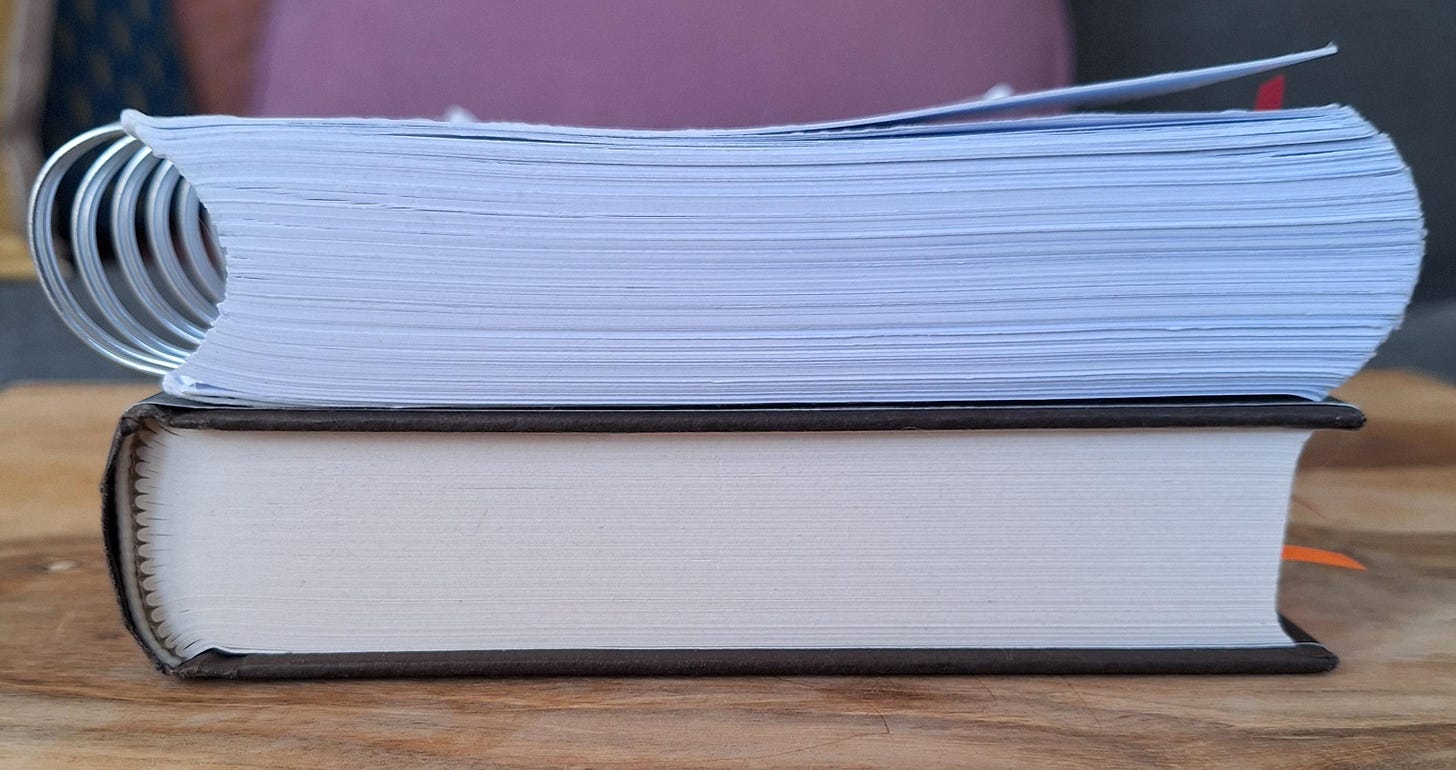
In addition to thousands of pages of primary sources, I have a long list of secondary sources (books and articles) about the 19th-century Royal Navy, British social history, Imperialism and polar exploration. I could spend forever educating myself on these topics, but I do hope to finish writing the Fitzjames biography by the end of this year.
As an academic historian, I am not interested in writing an adventure novel or an idealised version of Fitzjames. I am interested in critical analysis and evaluation. While I wholeheartedly believe in an empathetic and nuanced approach to history, I don’t believe in heroisation or glossing over the uglier sides of history. It is possible to be critical and empathetic at the same time. Indeed, empathy is crucial to understanding the views and actions of historical figures. Simplistic takes such as “they were all monsters” and “they were all bad” don’t make for an interesting or correct analysis. At the same time being nuanced does not mean condoning people’s actions. It is no use to judge Fitzjames or any historical figure by today’s standards. The past is a foreign country etc. The point of writing about history is to learn from the past and not repeat it. Although going by the state of the world today, not much has been learnt…
While initially researching John Barrow Jr. for Fitzjames reasons, I learnt that Barrow Jr. was a fascinating man in his own right. Often confused with his father Sir John Barrow, not much is publicly known about him. My next project will be writing a biography of the delightful John Barrow Jr., I’m super excited!
Last but not least: I am working on an article about the exhibition history of Stephen Pearce’s group portrait The Arctic Council (1851) that I plan to submit to an academic journal. The painting was commissioned by John Barrow Jr. and he had a portrait of his dear friend Fitzjames included. I wrote the first version of the article as my research project for the MA Naval History.



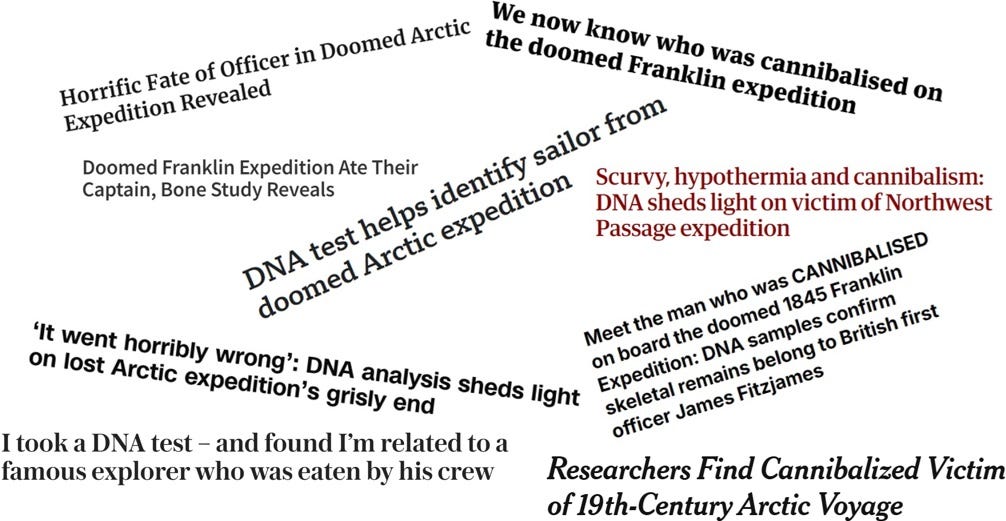

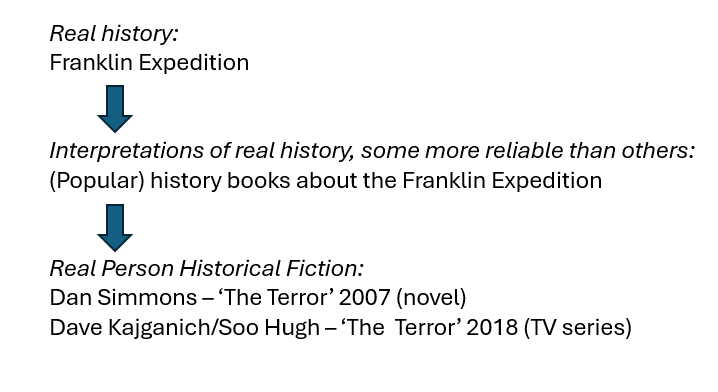
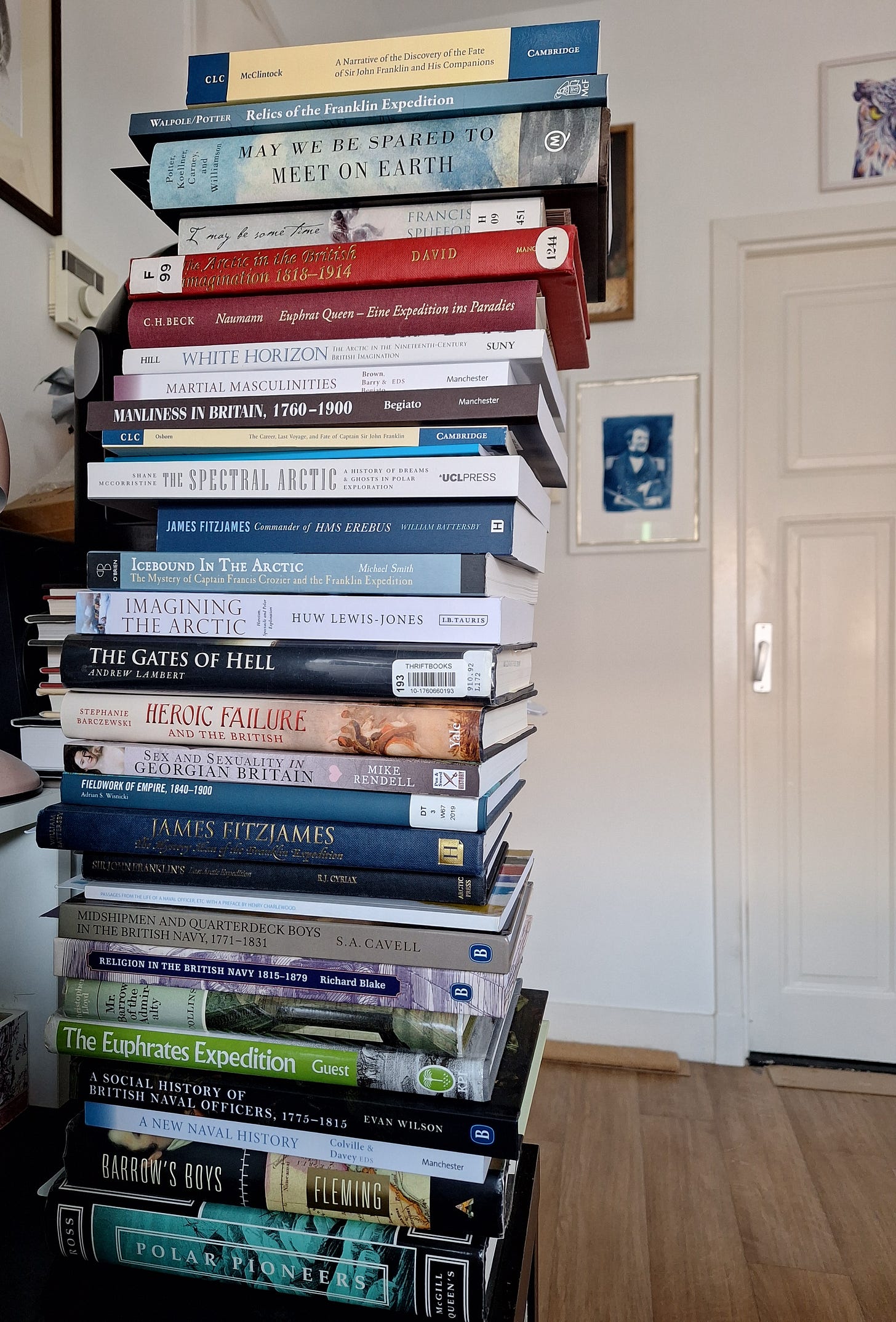
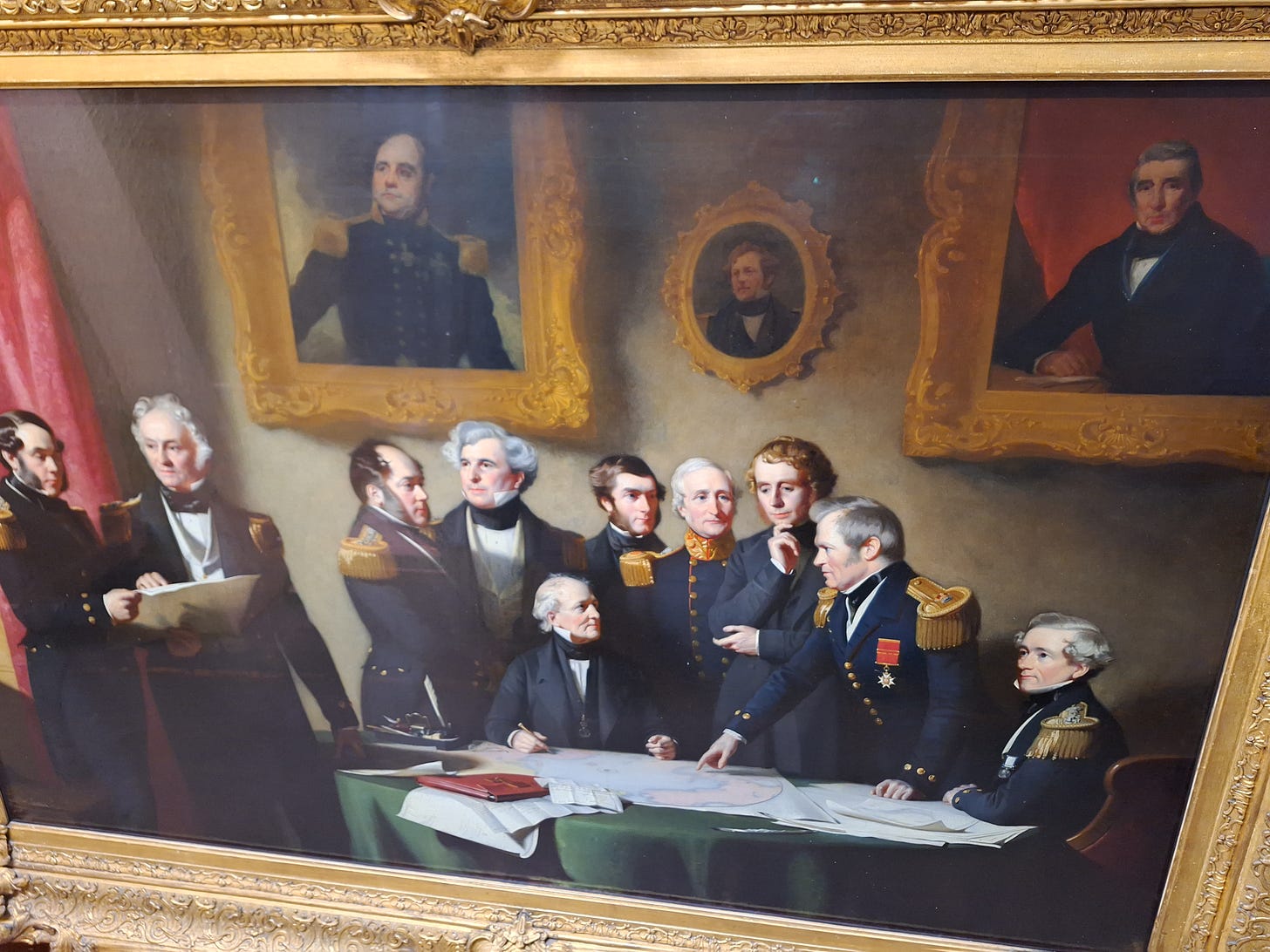
Just dropping by to say that I appreciate that you are one of the few who continue to draw a solid line between fact and fiction, and aren't afraid give the Terror fandom some constructive criticism when they need it. Although I have watched the show, I am far more interested in the real story of the Franklin Expedition and therefore exist only on the very edges of the Terror fandom. I don't understand about 3/4 of what they get excited over (in particular their reactions to survival cannibalism and the discovery of Fitzjames' remains), and find some of it quite disrespectful to the memory of Franklin and Company. As one historian to another, thank you for always seeking the truth first.
I am looking forward to reading your Fitzjames biography!
It is always refreshing to read someone's opinion that exactly corresponds with one's own. A very thoughtful and measured post. Battersby was an (email) friend of mine, and I enjoyed his book, but will look forward to your own thoughts on Fitzjames in due course. In the meantime, congrats on your degree, and do take some time for yourself. Regards.